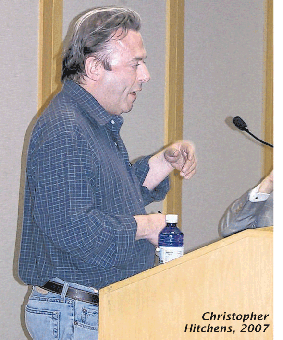Evangelical churches have existed in Serbia since the late nineteenth century. Baptists, for example, received legal recognition in 1905, in parts of the country; and, after the formation of the Kingdom of Serbs, Croats and Slovenians in 1918, enjoyed legal recognition.
After the Second World War the Communist government treated all those belonging to religious communities as second-class citizens. With the 1990s and the beginning of democracy, Evangelicals found themselves subjected to intense media hostility. Their properties became targets for attack by nationalistic organisations. They were frequently subjected to threatening behaviour.
Many evangelical churches had windows smashed and walls daubed with offensive graffiti. In some instances church services and other gatherings were interrupted. On one occasion, at an evangelical youth concert, a bomb was thrown into the crowd.
Cults
Evangelicals are associated in the public mind with cults. In the last 20 years many books have been published against ‘sects’ – with Evangelicals numbered among them.
The books are the products of the Orthodox theological schools. Their titles alone contribute to the incitement of hateful acts of vandalism and violence – titles such as Sects, Satanism, and False Prophetsand Soul Hunters. The material for the latter was first published in the Yugoslav Army Journal.
One police officer in the Ministry of the Interior wrote A Manual for Self-Defence, about how to defend Serbia against sects. It has been reprinted many times in large quantity print-runs. The Army publishing house produced A Lexicon of Religions, Mythology and Religious Sects. All this in post-communist Serbia!
Several nationalistic organisations pursue this agenda using extreme individuals from the Orthodox Church. The Serbian Government has not taken steps to curb their activities.
There have been many hundreds of anti-evangelical articles in secular and Orthodox church magazines; radio and TV programmes take the same line.
Draft law
In 2001 the first democratic government of Serbia brought out a draft proposal for new religious laws, based on the laws of the 1918 Kingdom of Yugoslavia. The problem is that in 1918 most evangelical churches did not exist or were not legally recognised. Even though Baptists were recognised in 1918, they were not included in a positive way in this draft.
The draft assigned special rights to just seven churches. All religious minorities, including Evangelicals, were labelled as ‘legal entities with religious purposes’. The list of the seven recognised churches indicates a pro-Orthodox and anti-Evangelical bias.
When Evangelical churches learned what was going on in this 2001 draft they eventually managed to stop it passing into law. Although the bill failed, some of its ideas survived and have become part of other laws.
Each of the seven privileged groups has the right to its own religious education in state schools. The children of Evangelicals, however, do not have the right to learn the religion of their parents. They have to be educated in the religion of one of the seven.
Four levels
The very latest draft religious law is similar to the 2001 one. It introduces a hierarchical division of religious communities, with four levels. Level one is reserved for the Orthodox Church. At the top of the pyramid, she holds the titleprimus inter pares (first among equals). Level two belongs to other ‘national’ religious communities.
Level three is for existing evangelical churches and religious minorities. ‘New religious communities’ are assigned to level four. Evangelical churches and religious minorities are not ‘churches’ but ‘religious associations’.
Such a proposed law seems to entrench widespread discrimination, not only with regard to religious education, but also in relation to institutions such as hospitals (ethical issues) and the use of state resources.
Evangelicals in Serbia are lobbying the Ministry for Religious Affairs. Their hope is for a law that will give much greater assurance of religious liberty.
The democratic government of Serbia is making an effort to legislate for religious liberty. However, it has a deficient knowledge of evangelical churches. It has been adversely influenced by the negative media campaign of the last twenty years.
Evangelicals in Serbia don’t expect more rights than others, but they do hope that the new democracy will guarantee them the same rights as all other religious communities. Let us pray with them that their hopes might be realised.













